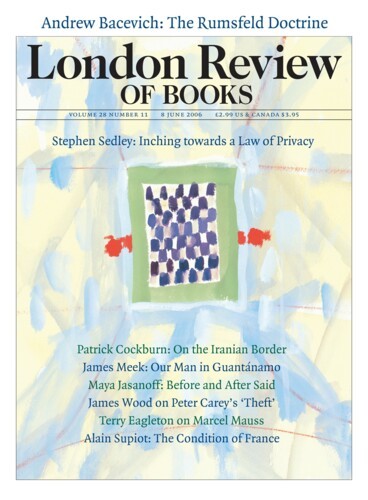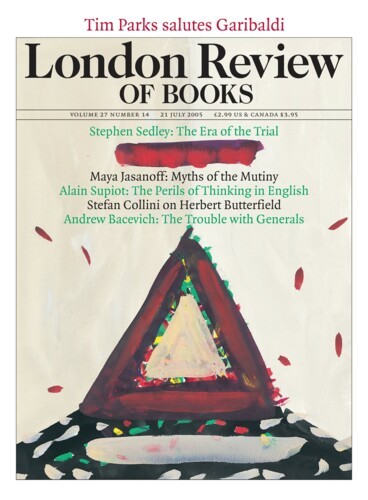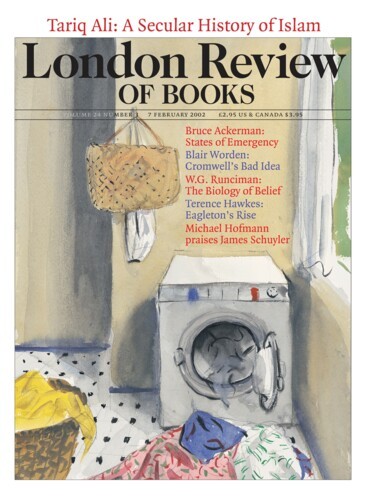Ten Billion Letters: Artilleur Pireaud writes home
David Coward, 21 June 2007
In August 1914, France mobilised jubilantly. ‘La Patrie’ was in danger and men and women of all classes and stations rallied to its defence. Florid voices on the clerical, aristocratic, conservative right defined patriotism grandly, as a mystical religion rooted in the land. Others, more worldly but no less exalted, were clear that patriotism was a hard-won secular tradition under...





